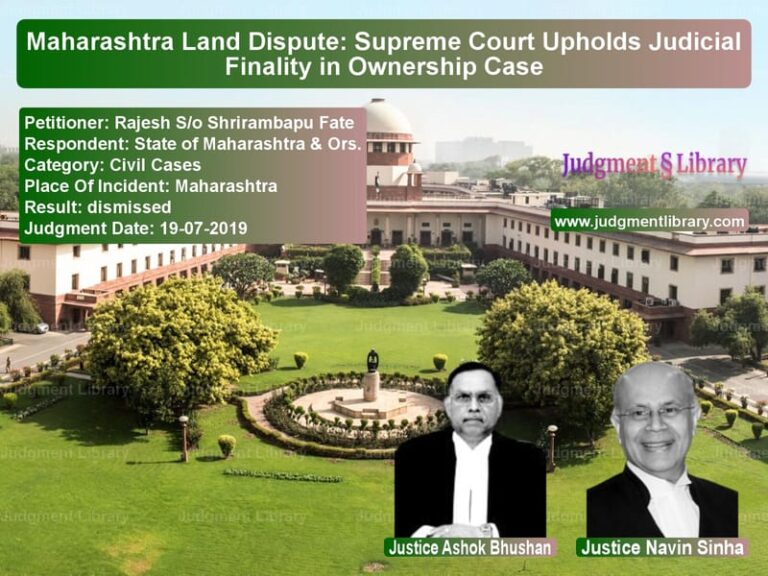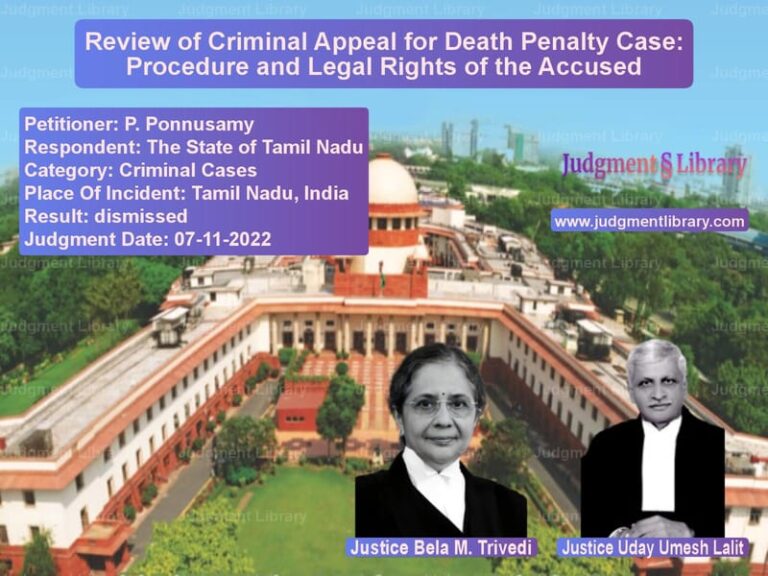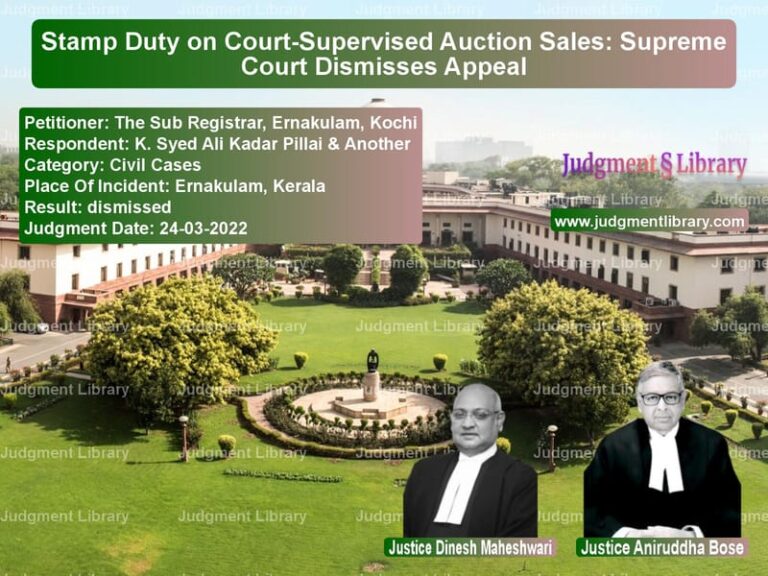Legal Dispute Over Residential Construction: Supreme Court’s Ruling Explained
The legal dispute between Dr. Ranbeer Bose and Anita Das reached the Supreme Court of India, where the matter concerned the alleged violation of municipal building rules in the construction of a residential property. The case, arising out of contempt proceedings, questioned whether the High Court’s intervention in what appeared to be a private dispute was justified.
Background of the Case
The respondents, particularly Anita Das, alleged that the appellants, Dr. Ranbeer Bose and another party, had failed to maintain the open spaces required under Rule 50 of the West Bengal Municipal (Building) Rules, 2007. The case initially went before the High Court of Calcutta, where the Single Judge, acting on a writ petition, directed an inquiry into the matter.
Petitioner’s Argument
The appellants contended that the case involved a purely private dispute between two neighbors and should not have been entertained under writ jurisdiction. They argued that the municipal authorities had acted under the pressure of contempt proceedings and had issued a show cause notice to them without a valid basis. Their key argument was that there was no allegation of deviation from the sanctioned building plan, making the municipal notice unjustified.
Respondent’s Argument
The respondents countered that the construction had indeed violated the sanctioned building plan, and therefore, an inquiry was necessary. They emphasized that the High Court had considered all relevant material before issuing directions to investigate the matter.
Supreme Court’s Ruling
The Supreme Court noted that the dispute appeared to be of a private nature between neighbors. The Court expressed reservations about the High Court exercising writ jurisdiction in such a matter. However, since the municipal authorities had already conducted an inquiry and presented a report, the Supreme Court granted the appellants the liberty to challenge the show cause notice and the inquiry report under the West Bengal Municipal Act, 1993.
The Court further emphasized that the objections raised by the appellants should be considered fairly, without being influenced by the pending contempt proceedings or the orders passed in the writ petition. The Supreme Court clarified that if the municipal authorities ruled against the appellants, they would have the right to appeal the decision before the appropriate court.
Conclusion
The judgment underscores the importance of following the due process established under municipal laws while resolving disputes regarding construction violations. It also highlights the limitations of invoking writ jurisdiction in cases involving private conflicts.
Petitioner Name: Dr. Ranbeer Bose & Anr..Respondent Name: Anita Das & Anr..Judgment By: Justice B.R. Gavai, Justice Sandeep Mehta.Place Of Incident: West Bengal.Judgment Date: 03-05-2024.
Don’t miss out on the full details! Download the complete judgment in PDF format below and gain valuable insights instantly!
Download Judgment: dr.-ranbeer-bose-&-a-vs-anita-das-&-anr.-supreme-court-of-india-judgment-dated-03-05-2024.pdf
Directly Download Judgment: Directly download this Judgment
See all petitions in Property Disputes
See all petitions in Specific Performance
See all petitions in Damages and Compensation
See all petitions in Judgment by B R Gavai
See all petitions in Judgment by Sandeep Mehta
See all petitions in partially allowed
See all petitions in supreme court of India judgments May 2024
See all petitions in 2024 judgments
See all posts in Civil Cases Category
See all allowed petitions in Civil Cases Category
See all Dismissed petitions in Civil Cases Category
See all partially allowed petitions in Civil Cases Category







